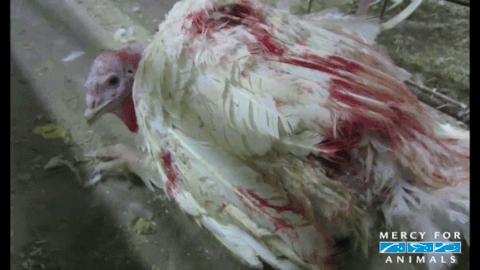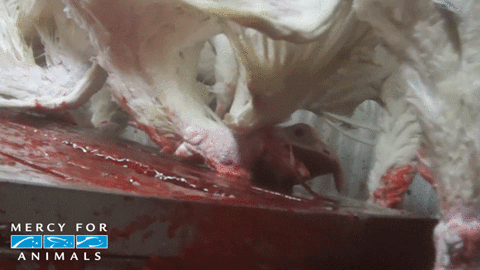According to Medical Daily, the CDC reported the first
death in a salmonella outbreak linked to turkey products. So far, the
outbreak has affected 164 people across 35 U.S. states and is expected to grow.
The CDC says the outbreak is likely widespread in the turkey
industry, as the strain has been found in ground turkey, turkey patties, raw
turkey pet food, and live turkeys. The outbreak began last November but tests
have not identified a common source supplier.
Typical symptoms of this strain include nausea, diarrhea, fever,
and stomach cramps. In some cases, there is a risk of severe illness, which can
lead to long-term complications or even death.
Salmonella outbreaks in the meat and egg industries are
incredibly common. Earlier this year, the Miami
Herald announced that a massive salmonella
outbreak had prompted the recall of 206 million eggs from nine different brands
in nine states! What’s more, CNN reported that an additional 92 people from 29
states had been infected by drug-resistant salmonella found in a variety of
chicken products.
From salmonella to E. coli, dangerous pathogens lurk in nearly
all meat. In fact, around 25 percent of cut-up chicken meat and about 50
percent of ground chicken sold in stores is contaminated with
salmonella.
But salmonella isn’t just found in turkey and chicken. According
to the FDA, seafood imports from China—around 27 percent of the
seafood consumed by Americans—are frequently contaminated.
Additionally, salmonella cases involving pork and beef are
on the rise. In fact, overall salmonella infection rates have risen 44 percent
in just the past decade.
In addition to salmonella and E. coli, many other harmful
bacteria and viruses are often found in meat, including vibrio, listeria,
shigella, and campylobacter. A recent analysis found that nearly 60 percent of
U.K.-produced chickens tested positive for campylobacter.
Experts believe the source of this latest turkey salmonella
outbreak is fecal contamination, a common means of transmission. In fact, a
Dutch report from RTL Nieuws recently shared that fecal contamination in
meat and on slaughterhouse equipment had doubled over the course of a year.
But why is meat contaminated with fecal matter? Because factory
farms are filthy and crowded with animals who are often
sick, unable to move, and covered in waste.
The CDC recommends caution with products that may be
contaminated with salmonella, but one surefire way to prevent infection is to
avoid turkey and other animal products altogether.
By leaving turkey products off your plate, you not only protect
yourself from health risks like salmonella but help protect animals from abuse.
Every year over 45 million turkeys
are killed for Americans to eat at Thanksgiving. And like most animals
raised and killed for food, turkeys are put through
hell at factory farms from the moment they’re born until they’re
violently killed.
These animals never get to know the love of their mothers or
feel the sunlight on their backs or the grass beneath their feet. Instead, they
are subjected to mutilations without painkillers and crammed by the thousands
into dark, windowless sheds.

For maximum profit, turkeys are bred to grow so quickly they
often become immobilized under their own weight. In fact, the natural life span
of a turkey is 10 years, but through special breeding, turkeys reach “market
size in just several weeks. Many suffer debilitating leg and joint pain, heart
attacks, and organ failure. Because of their immobility, many birds have to sit
in their own waste, which causes painful sores and infections.
When they reach the desired weight, they are rounded up, crammed
onto trucks, and shipped to slaughter. The trip can take days. Given no food or
water and exposed to all weather conditions, many turkeys die before reaching
the slaughterhouse.

Once the turkeys arrive, they are shackled upside down by their
feet and have their throats cut open. Some birds are improperly shackled and
miss the kill blade, and many are scalded alive in the defeathering tanks.

Mercy For Animals has
conducted over half a dozen undercover investigations of turkey factory farms
in the U.S. and Canada. Each time, we have documented horrific abuse.
Turkeys are just as
sensitive and intelligent as the dogs and cats we adore at home. This
senseless and horrifying abuse flies in the face of everything Thanksgiving is
about: gratitude.
Fortunately, you can protect your family, yourself, and animals
by choosing to leave turkey off your Thanksgiving dinner menu. Check out our
list of vegan Thanksgiving
recipes.